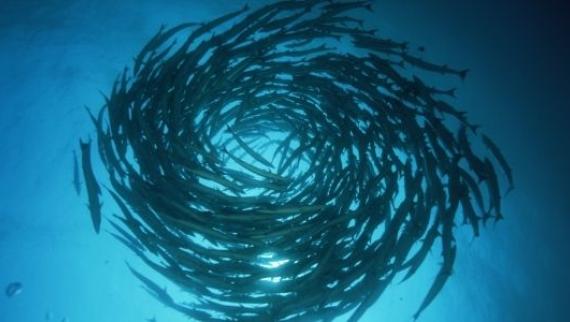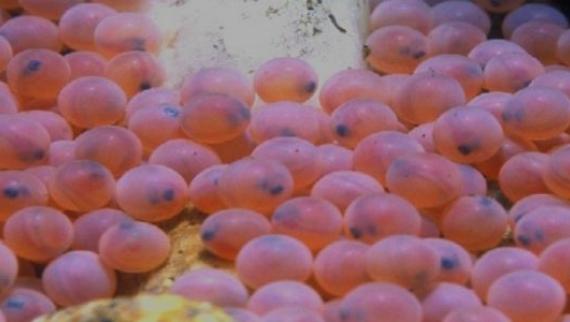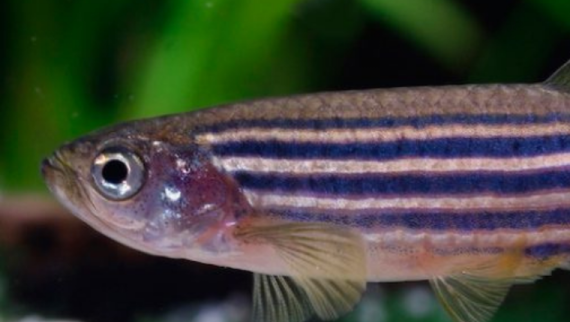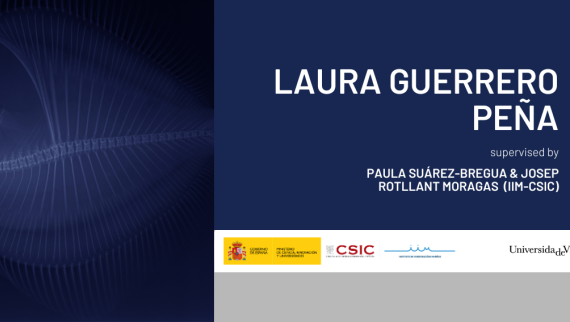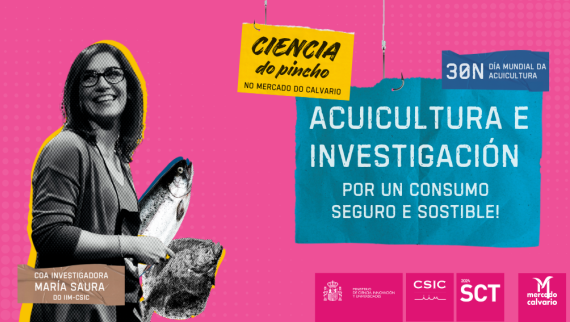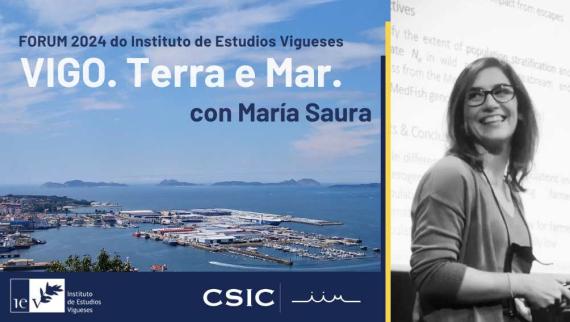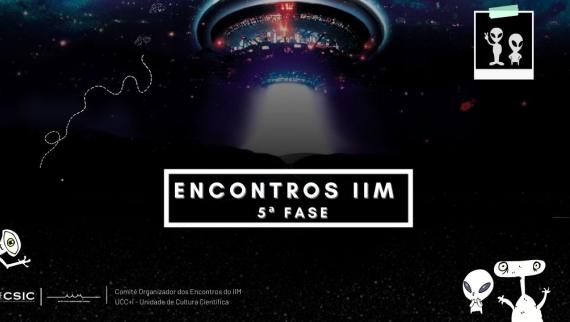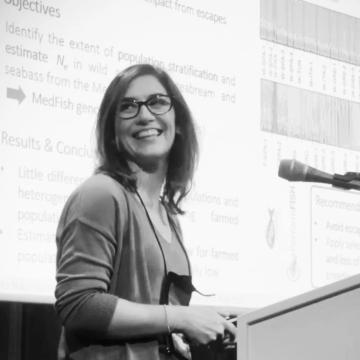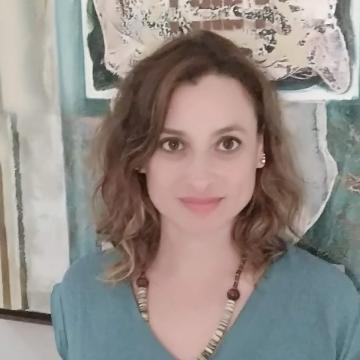Aquatic Biotechnology Lab
Our lab studies the fundamental question of how the development of complex organisms is controlled, using turbot and zebrafish as our models.
The main scientific objective of the Aquatic Biotchenology Lab is to apply molecular and cellular approaches to studies of early development and disease in fish, as well as to apply basic science to improve the yield, performance and sustainability of marine aquaculture at the global level.
Our lab's research generally focuses on understanding how the information encoded in DNA is accurately used by cells to perform the physiological functions required during the different developmental phases.
The disruption or breakdown of these regulatory mechanisms is responsible for many developmental abnormalities, such as morphological deformities. We aim to reveal the way some of these mechanisms work, which, in turn, will help us understand the cause of the associated abnormalities. We use zebrafish (Danio rerio) and turbot (Scophthalmus maximus) as model systems.
- DES4FISH -
<p>Programa Ciencias Mariñas: Descartes pesqueiros como ingredientes para acuicultura</p>
Principal investigator:VázquezÁlvarezXosé AntónFunding body:El Programa de Ciencias Mariñas de Galicia es 1 de los 5 programas de Ciencias Marinas de los Planes Complementarios de I+D+I del Plan de Recuperación Transformación y Resilencia. Financiado por FEMP/FEMPA.Funding for IIM-CSIC:46800€Go to project pageFromto - NuTec -
<p>Nuevas Tecnologías moleculares y de control remoto para la Evaluación de las poblaciones de Cetáceos</p>
Principal investigator:PierceGraham JohnRotllantMoragasJosepFunding body:Ayuda BM2019/40 financiada con la colaboración de la Fundación Biodiversidad y del Ministerio para la Transición Ecológica y el Reto Demográfico para la Conservación de la Biodiversidad Marina en EspañaFunding for IIM-CSIC:58322€Go to project pageFromto - FISH_RECAP -
<p>One genome for two body plans: genome-wide functional genomic and transcriptomic approaches to understand the genetic bases of fish metamorphosis</p>
Principal investigator:RotllantMoragasJosepFunding body:Proyecto AGL2017-89648-P financiado por MCIN/AEI/10.13039/501100011033/ y por FEDER Una manera de hacer EuropaFunding for IIM-CSIC:165000€Go to project pageFromto
- Jesús Marco de Lucas; M. Victoria Moreno-Arribas; Montoliu, Lluís; Rada-Iglesias, Alvaro; Domínguez, María; Huertas Sánchez, Pablo; De Las Rivas, Javier; Rojas, A. M.; Azorín, Ferran; Rotllant, Josep; Gutiérrez Armenta, Crisanto; Hernández-Munaín, Cristina; Barco, Ángel; Gómez, María; Herrero, Antonia; Ramos, Lourdes; Fraga, Mario F.; Ramos, Sonia (2021) White Paper 3: Genome&Epigenetics Consejo Superior de Investigaciones Científicas ISBN:978-84-00-10739-0
- Guerrero-Peña, L.; Suarez-Bregua, P.; Méndez-Martínez, L.; García-Fernández, P.; Tur, R.; Rubiolo, J.A.; Tena, J.J.; Rotllant, J. (2021) Brains in Metamorphosis: Temporal Transcriptome Dynamics in Hatchery-Reared Flatfishes Biology DOI:10.3390/biology10121256
- Azorín F; Rotllant J; Albert Jordán; Ignacio Maeso; Miguel Manzanares; Álvaro Rad; Joaquim Roca; Guillermo Vicent (2021) 3D Genoma Architecture " Genome & epigenetics vol. 3" Consejo Superior de Investigaciones Científicas
- Henriques, D.; Balsa-Canto, E. (2021) The Monod Model Is Insufficient To Explain Biomass Growth in Nitrogen-Limited Yeast Fermentation Applied and Environmental Microbiology DOI:10.1128/AEM.01084-21
- Suarez-Bregua, P.; Pirraco, R.P.; Hernández-Urcera, J.; Reis, R.L.; Rotllant, J. (2021) Impact of dietary phosphorus on turbot bone mineral density and content Aquaculture Nutrition DOI:10.1111/anu.13253
- TFM - Andrielle Larissa Reascos Tatés (26/09/2022) Nuevas herramientas para la monitorización de cetáceos en el norte y noroeste de la Península Ibérica: ADN ambiental y drones UNIVERSIDAD COMPLUTENSE DE MADRID
- TFM - PRIYANKA SONI (15/07/2021) How Fishes Color their Skin: Genetic Analysis of Melanocortin Receptor 2 (MC2R) in Fish Pigmentation UNIVERSIDAD DEL PAIS VASCO (UPV/EHU )
- TFM - Lara Vidal Nogueira (04/09/2020) La arquitectura tridimensional del Genoma. Principios y funciones Univerdidad de Vigo (UVigo)
- TFM - Luis Méndez Martínez (14/07/2020) Caracterización funcional del papel del receptor de melanocortinas Mc2r en la formación del patrón de pigmentación en el pez cebra (Danio rerio) Univerdidad de Vigo (UVigo)
- TFM - Miguel Álvarez González (09/07/2020) Análisis de ADN ambiental (eDNA) y su aplicación para la monitorización de cetáceos en el Atlántico norte Universidade de Vigo (UVIGO)
<p>Optimización y bienestar del pulpo común bajo condiciones de cultivo</p>
Principal investigator:RotllantMoragasJosepFunding body:NUEVA PESCANOVA BIOMARINE CENTER SLFunding for IIM-CSIC:142428€Go to project pageFromto- FishGenome -
<p>Improving Cost-Efficiency of Fisheries Research Surveys and Fish Stocks Assessments using Next-Generation Genetic Sequencing Methods</p>
Principal investigator:SaboridoReyFranFunding body:European CommisionFunding for IIM-CSIC:800000€Go to project pageFromto
- Capabilities | Biodiversity AssessmentMarine instruments & sensors Coastal & Environmental Protection Maritime Spatial Planning Ecosystem Services & Governance
Monitoring temporal and spatial distribution of species, abundance and biomass from several taxa using different techniques such as e-DNA, pigment characterization, flow cytometry, acoustic telemetry, images collected from remote observation systems (i.e. drones, etc.) or classic taxonomic identification.
- Capabilities | Development and optimization of aquaculture systems for traditional and new farmed species
Development of integrated culture techniques for new aquaculture species, as well as optimization of traditional ones based on different approaches (i.e. early development, handling, feeding, disease and immune responses, ecophysiological performance, or ecosystem carrying capacity) to improve animal welfare, yield and sustainability in global marine aquaculture.
- Capabilities | Fisheries stock assessment using traditional and molecular ecology approaches
Development of stock assessment models to estimate fish population status and Maximum Sustainable Yields for fisheries, based on fishing pressure data and population dynamics parameters (abundance, distribution, age, fecundity, etc.) obtained using traditional approaches and -omic techniques, which allow for a much higher spatial resolution.
- Capabilities | Development of “in vivo” bioactivity tests for biomolecules using animal models
Use of animal models (zebrafish, turbot, mice, etc.) as model systems to study the bioactivity of different compounds, as well as fish and human diseases (septic shock, inflammatory illnesses, etc.).
- Capabilities | Advanced -omics applied to marine organisms
Studies on the structure of the genome of marine organisms, including gene mapping, DNA sequencing and how the complete set of RNA transcripts is produced by the genome and affected by development, diseases, or environmental factors conditioning the phenotype and particularly proteomics and metabolomics, always applying the most advanced techniques (ATAC-seq, MethylCap-Seq, RNA-seq, recombinant DNA technology, knockin and knockout CRISPR/Cas9, enhancer detector (ZED),Tol2 kit and BAC transgenic technologies, etc.).

